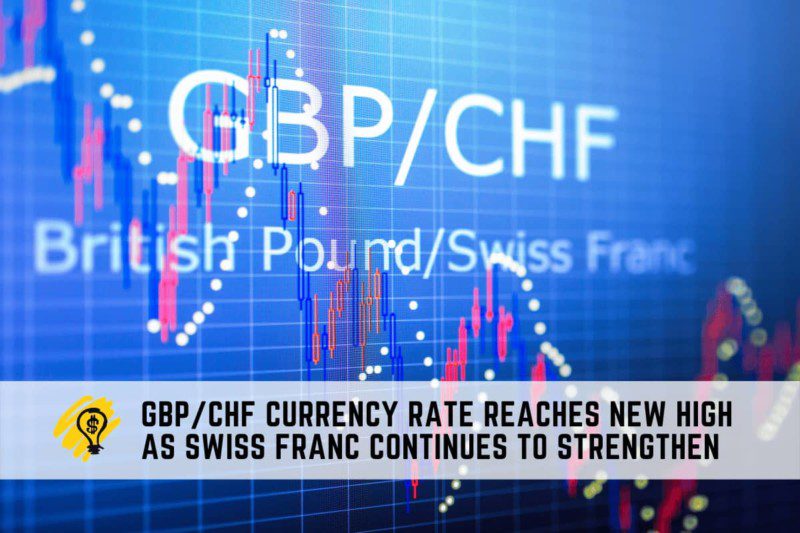Currency rates play a crucial role in international trade and finance, as they determine the value of different countries’ currencies in relation to one another. Recently, the GBP/CHF currency rate has reached a new high, causing some investors and businesses to take notice.
In this article, we will delve into the history of the GBPCHF rate, the reasons behind its recent surge, and the potential implications of this development.
History of GBP/CHF rate
The GBP/CHF currency rate refers to the exchange rate between the British pound and the Swiss franc. The British pound is the official currency of the United Kingdom and its territories, while the Swiss franc is the official currency of Switzerland and Liechtenstein. The GBP/CHF rate has fluctuated significantly over the years, with periods of relative stability interspersed with more volatile stretches.
The recent trend of GBP/CHF rate
In recent years, the GBP/CHF rate has trended upward. This trend has accelerated in recent months, with the rate reaching a new high in December 2022.
Reason for a new high in GBP/CHF rate
So what has caused this surge in the GBP/CHF rate? One of the primary factors has been the relative strength of the Swiss franc.
The Swiss franc is considered to be a safe haven currency, meaning that it is often sought after by investors during times of economic uncertainty or market turmoil. As a result, the value of the Swiss franc tends to rise during such periods. This has been the case in recent months, as the global economic outlook has become increasingly uncertain due to the ongoing COVID-19 pandemic and its impact on various industries. As investors flock to the perceived safety of the Swiss franc, the demand for it increases, leading to an appreciation in its value.
Implications of a new high in GBP/CHF rate
The strong Swiss franc has had a number of implications for the GBP/CHF rate. For one, it has made Swiss exports more expensive to foreign buyers, as they must exchange their own currency for Swiss francs in order to purchase these goods. This has the potential to negatively impact Swiss businesses that rely on exports for a significant portion of their revenue.
On the other hand, the strong Swiss franc has made it more affordable for foreign buyers to purchase goods and services from the United Kingdom, as they can get more pounds for their francs. This could potentially benefit British businesses that rely on exports to Switzerland.
The new high in the GBP/CHF rate could also have implications for international tourism. For example, a stronger Swiss franc could make it more expensive for British tourists to visit Switzerland, as they would need to exchange more pounds for francs in order to cover the cost of their trip. This could lead to a decrease in the number of British tourists visiting Switzerland, which could negatively impact the Swiss tourism industry.
It is worth noting that the GBP/CHF rate is just one of many currency pairs that can be affected by changes in the value of the Swiss franc. Other currencies that are often correlated with the franc, such as the euro and the US dollar, may also be impacted by its strength.
Conclusion
In conclusion, the recent surge in the GBP/CHF currency rate is largely due to the strength of the Swiss franc, which has been driven by its safe haven status amid economic uncertainty caused by the COVID-19 pandemic. While this trend has the potential to benefit some businesses, such as those in the United Kingdom that rely on exports to Switzerland, it could also have negative consequences for others, such as Swiss businesses that rely on exports for revenue.
It is important for investors and businesses to keep a close eye on the GBP/CHF rate, as well as other currency pairs that may be impacted by changes in the value of the Swiss franc, in order to make informed decisions about international trade and finance.





